This week in ‘Women in the Mountains’ we sat down with Samantha Ramirez-Herrera to hear more about her work as a storyteller. Sam primarily focuses her work on social justice issues but is excited to be part of the outdoor community.
Samantha “Sam” Ramirez-Herrera is the kind of person who wears a lot of hats. At any given moment she’s an entrepreneur, filmmaker, creative director, writer, and civil rights activist focused on telling raw and authentic stories to uplift marginalized communities. But this long list of accomplishments isn’t even the most impressive part of her story, no, what stands Sam apart is that she’s cultivated this career from the ground up. At seven years old Sam and her family made the trek from Mexico City to the United States to pursue a better life. As an undocumented immigrant, she was forced to live in the shadows out of fear of being deported. These challenges, however, did little to temper her ambition.
When the Deferred Action for Childhood Arrivals (DACA) program became enacted, Sam became a DREAMer and used that opportunity to launch her creative content agency called Off Tha Record. Now she uses her platform of storytelling to highlight issues in communities of color like feminism, economic justice, immigration, reproductive justice, LGBTQ rights, and mental health. As her company grows, one arena she’s excited to expand into is the outdoor industry. Sam is a passionate hiker and has always turned to nature as a space for healing and inspiration. She wants to share what the outdoors has to offer with other BIPOC individuals, with hopes that they’ll see it as a space for themselves. Recently, she teamed up with Christeen Walch to be the M.C. for the upcoming Women of Winter speaker series, which features a handful of BIPOC women who are movers and shakers within the outdoor industry.
We were able to catch Sam in between shoots to hear more about her career, her passion for storytelling, and how we can make the outdoors a more accessible and equitable place. Check out what she had to say:
Can you start by telling me about your background and story?
Sam Ramirez-Herrera: I’m an immigrant and currently a DACA recipient. I originally came to America when I was six and a half years old. I like to think that my introduction to nature was my trek to America from Mexico and I know that sounds so bizarre, but that’s the truth.
I grew up here in America as an undocumented immigrant and didn’t realize what that meant until I was in high school and couldn’t do things like my classmates like pursue a college degree. At that time the topic of immigration was not what it is like today.
Did you grow up with a connection to the outdoors, or did that come later in your life?
SHR: I grew up in Arizona, a state that has mountains, deserts, and this incredible access to nature. I was never really introduced to the outdoors in a way that was formal like the Girl Scouts or my parents taking me camping.
Instead, my introduction to nature was my dad taking us kids to the mountains of Arizona, and letting us explore. Our adventures pretty much consisted of climbing on rocks and trying not to get poked by cacti. When I was younger I never understood the concept of needing the right hiking shoes or packing the proper lunch, because we were just happy to be outside and go on an adventure. For me, this time spent outside meant a lot, because as an immigrant growing up in America you’re faced with a lot of challenges. These challenges can feel just like climbing a mountain at times, but I also tie those lessons back to when we climbed these mountains in Arizona with my dad.
Sam is always looking for the shot with her production company Off Tha Record.
How did DACA impact your life?
SHR: When DACA came into play, I was able to create my business which is a production company called Off Tha Record. We do a lot of creative content development and most of the things we produce are through a social justice lens. We just worked with Stacy Abrams with the Fair Fight campaign, developing content around voter mobilization.
I’m grateful because I found success by blazing my own trail in life.
Storytelling is a huge part of your work now. Why is that such an important tool for you?
SHR: I always felt that my story was the kind of story that people didn’t care to hear. As an undocumented immigrant, you’re taught to keep your head down, and not tell the world—even your friends—about your situation. There’s always been such a stigma and shame attached to it. Growing up, it made me feel like our stories didn’t matter, they weren’t valuable, and that nobody cared.
These feelings inspired me to tell other people’s stories who felt the same way I did. It all came from that desire from wanting your voice to matter.
What do you think makes a captivating story?
SHR: Emotion is the thing that connects all of us. We have all felt things like anger, sadness, happiness, and it connects all of us, regardless of what language we speak. People will forget what you say, but they’ll never forget the way they make you feel. If you’re able to make someone feel something after watching a video or reading a story you wrote, then you’ve had success.
I think the most compelling stories feature real people, you know? There has to be a level of authenticity that we can identify with. I do a lot of work with advertising and it’s interesting because a lot of brands are moving in the direction of telling stories with real people because the research shows that these narratives are more successful.
Do you see your agency pursuing more projects in the outdoor industry?
SHR: Definitely! Even though social justice work is our bread and butter, we’re still a creative agency and we love to dabble in other things. Storytelling is the core of what we do, and I would love to create content around the outdoors.
Sand Duning is one of Sam's favorite ways to get outside.
You talked about experiencing the outdoors as a kid, but when did you pursue this space for yourself?
SHR: The outdoors has always been a space of healing for me, and as I got older, I wanted to learn more and become more involved with it. When I discovered this group called Latinx Hikers here in Georgia it helped a lot. I think some people would think I’m late to the game, but I think it’s perfect timing.
Going on hikes in the Smoky Mountains or going sand duning is important to me because I honestly don’t see a lot of people of color out there. I think there's such a disconnect between people of color and the outdoors is that we don’t always get that introduction that we need. I think it can be intimidating too. When I go to those rural areas to hike, sometimes you get these off-putting looks that make you think ‘maybe I don’t belong here.’
Do you feel that the outdoors could be a benefit for these communities?
SHR: Yes, I do. I find a lot of healing and peace when I’m out in nature. It’s also a gift that everybody deserves. It makes me sad when I try to invite some of my friends to go on a hike and their response is ‘that’s for white people.’ I think a lot of BIPOC individuals have this perception that they don’t deserve to be in these spaces, and a big reason for this thinking is that most of us weren't introduced to the outdoors at a young age by our parents. I know my parents were always focused on work and we could never afford the proper equipment to really experience things like hiking or skiing.
I do feel like if more people were exposed to it and had the accessibility to buy the gear that they need, it would be transformational and healing for so many communities.
When you sought out community in the outdoors, what kinds of resources were helpful?
SHR: I think social media has helped immensely because it shows us that all kinds of people are getting outside. For me, I do a lot of research via social media and get a lot of information from pages like Diversify Van Life, Diversify the Outdoors or Latinx Hikers. Just being able to see where people are going and how they participate in the outdoors helps me wrap my head around it and gives me a place to start.
Sam uses her skills as storyteller to uplift other underrepresented communities.
You’re going to be the M.C. for the upcoming Women of Winter event, how did you become connected with the event’s founder Chris Walch?
SHR: I met her at this event in Montana, and I was asked to share my story about DACA. At first, I was nervous, because—at the time—I had never spoken in front of a crowd about my story. Chris offered to help me practice and she took me under her wing. She’s the kind of person who wants to lift you up. I ended up coming back to Montana to see more of the mountains and reconnected with her to learn how to ski. She let me borrow her gear, and it was awesome being on the slopes.
What did you think when she asked you to get involved with the Women of Winter event?
SHR: At first I was hesitant because I felt like an imposter. The lineup features these badass women like Sasha Dingle, who’s a former Freeride World Tour skier, and I just didn’t see where I fit in. You know I’m not a professional skier; I just go out and enjoy being outside. But Chris brought up a great perspective that their goal was to bring equity into the outdoors, which means people need to see themselves reflected in other individuals. I think that’s a great point because someone who's newer to the outdoors can relate to my experiences.
I eventually became really excited about the opportunity. I would love a world where young women of all backgrounds can be inspired to become the next Sasha or Chris.
The outdoor industry is grappling with how to make these spaces accessible and inclusive to everyone. As someone like yourself who works in storytelling, what kind of advice would you give to brands/creatives for making meaningful content?
SHR: I would say do what Women of Winter are doing. They’re inviting all kinds of people to the conversation.
When it comes to brands, we saw this big conversation around Black Lives Matter and the protests, and most companies jumped on board by posting their black square. But supporting these underserved communities looks much different than posting a black square. It’s as simple as inviting the people you want to reach to be the storytellers or producers of the content you’re trying to produce. Or it means going into these communities and sharing their stories. When it comes to messaging, brands should think about hiring copywriters who are part of these communities and know how to ask the right questions. Little things like this go a long way.
There’s been this big awakening happening with the outdoor industry around racial injustice and the Black Lives Matter movement. How is this bigger conservation related to space like the outdoors?
SHR: Racial injustice trickles down into every activity. For me and other BIPOC individuals, it’s important to know that all the spaces we want to be a part of feel equitable and inclusive. It all boils down to feeling safe and welcome.
It’s clear that when a group of people doesn’t show up to something it’s because they aren't welcomed. For example, I’ve always wanted to ride a razor in the desert but I've always felt intimidated by it. There’s no one in that community that I can relate to or lean on for help. I eventually figured it out on my own, but even when I was out there, I felt this tension which made me feel uncomfortable.
https://drive.google.com/drive/folders/1hNuH9Sgat-ovH02Sc5LJ6rAJqwvkw31P?usp=sharingA peek behind the scenes with Sam and her crew.
There’s no quick fix to these issues, too.
SHR: Yeah, and we can talk about this all day, but what actions are brands taking? You know, if you go to a ski brand’s website then how many people of color are in the advertisements? How many people of color sit on the board of an organization?
At the very least, you can make an impact with one person at a time. If you change one person’s life, then they’ll take that back into their community and it will grow. It's a ripple effect.



__video_thumb.jpg)


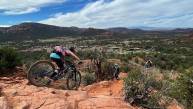
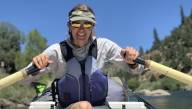

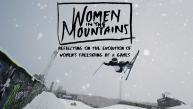

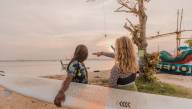

__video_thumb.jpg)

__video_thumb.jpeg)

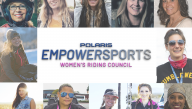
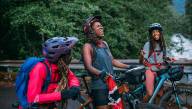
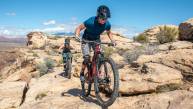
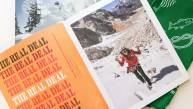
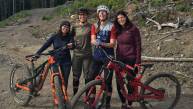
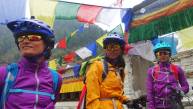
Caden
February 16th, 2021
It’s amazing to read your story and learn a little more about yourself. The fact that you have managed to overcome all the problems and obstacles that have been presented to help me write my dissertation and the fact that you have managed to get here, shows your incredible determination and the ability to follow your dreams.
SamStevens
April 29th, 2021
Seems fun to travel to Mexico. I had fun reading the backstory to your film inspiration. Thanks for sharing! Septic Repairs
Sylvia Hendren
April 8th, 2022
We have on board domain experts who are PhD holders from renowned universities across the globe, and we exclusively offer top notch Assignment Help Our experts have tremendous experience in furnishing excellent quality Online Assignment Help within the shortest of deadlines. Our Assignment Helper consistently furnish bespoke and non-plagiarized work that fetch excellent grades too. You save a ton of time to prepare well for your term-end exams by seeking the amazingly affordable Help with My Assignment.
https://greatassignmenthelper.com/hk/